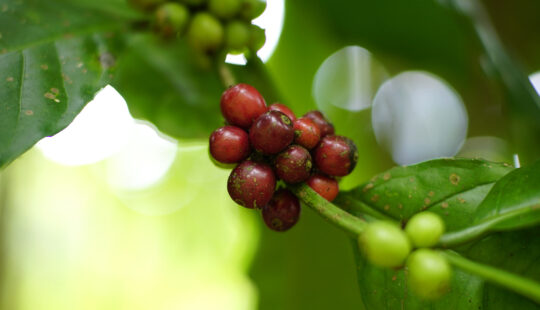 Africa’s population is expected to triple by 2100, with a substantial percentage of that growth concentrated in West Africa. Nigeria alone will be home to nearly 800 million people by the turn of the century, making it the second most populous country on Earth based on current estimates.
Africa’s population is expected to triple by 2100, with a substantial percentage of that growth concentrated in West Africa. Nigeria alone will be home to nearly 800 million people by the turn of the century, making it the second most populous country on Earth based on current estimates.
The vast majority of population growth across the continent will be concentrated in urban areas. WEF data indicates that more than 80% of Africa’s population growth between now and 2030 will be in cities, with Lagos growing at a pace of 77 people every hour.
One matter of concern is that city expansion will take place in the backdrop of an escalating climate crisis. The UN has designated West Africa as a climate change hotspot, prompting public and private sector organisations to seek novel solutions to sustainably enable the rapid population growth.
However, the stress that will be placed on city infrastructure and resources such as water should not be underestimated.
Data suggests that nearly two-thirds of the investments in urban infrastructure needed in Africa by 2050 are yet to be made, and time is quickly running out to enhance the sustainability and climate resilience of the continent’s cities.
The concept of a circular economy, where waste is eliminated and resources reused in an effort at restoring and regenerating nature, is gaining ground.
In a positive turn of events, several innovative circular economy initiatives are giving hope that the region is stepping on to a more sustainable path.
Ground-breaking efforts in Ghana
A recent project involving SAP, the World Economic Forum and the Global Plastic Action Partnership enabled greater visibility in the plastics supply chain by better tracking the work of more than 2000 waste pickers.
The project measures the quantities and types of plastic collected by waste pickers, analyses data, and then matches the collected waste to market-related prices in local and global value chains.
Sustainably-minded organisations can then opt to pay a premium for more socially-responsible plastics, while the waste pickers benefit from higher wages.
The project, led by Ghana’s Ministry of Environment, Science, Technology & Innovation (MESTI), brings Ghana closer to its ambitions of being a lighthouse for circular economy innovation in Africa. By using SAP’s Rural Sourcing Management solution, MESTI is able to scale the solution nationally once the current pilot project comes to a close.
To date, the project has secured the involvement of large consumer goods companies such as Coca-Cola.
In addition, Dow Chemicals West Africa, a subsidiary of Dow Inc, one of the largest chemical producers in the world, is using SAP Rural Sourcing Manager to fast-track its shift to reusable or recyclable products.
Dow Chemicals West Africa sought a technology solution that could track plastic in the informal sector to improve plastics recycling and support the wellbeing of plastic collectors in Ghana’s informal sector.
The initial solution is being trialled in Western Ghana, with plans to scale nationally in time.
Social enterprise closes loop in plastics repurposing
In Accra, Ghana, the ASASE Foundation is empowering female entrepreneurs to play a key role in cashing in on the plastic waste of Accra and its environs for the benefit of their own communities through the foundation’s CASH IT! Social Enterprises.
Only 20% of household garbage waste is collected in Accra, and only 2% of the waste is recycled, resulting in 78% of garbage ending up on the streets. Due to heavy rainfall, the garbage drains into the oceans, washing up on the shores or being ingested by the animals in and around the city. Plastic bags and containers often clog gutters causing hazardous flooding, endangering people’s lives and causing an environmental issue.
The ASASE Foundation uses SAP’s Rural Sourcing Management solution to enable female entrepreneurs to build their own plastic recycling business and cash in on the value of the waste for a profit. The social enterprise model will help create jobs and keep most of the value generated by recycling plastic in the community.
The innovative model has garnered the attention of the UN Development Programme, who are sponsors of the initiative and supportive of its mission to increase plastic recycling and improving the lives of the plastic pickers.
Further circular economy initiatives using SAP Rural Sourcing Management are being planned for Nigeria in 2022, and talks are underway with several large multinational organisations active in West Africa to fix the problem of plastic pollution and build a more sustainable society that can be a healthy home to our growing population.



